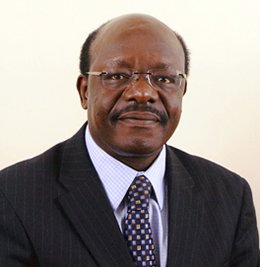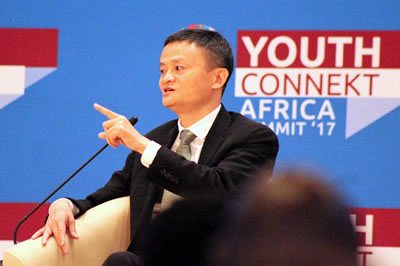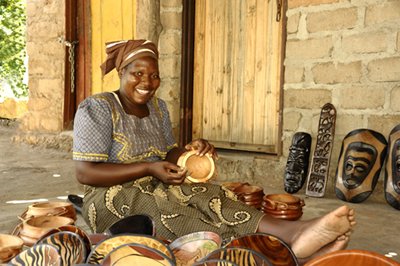The year 2017 was a busy one for UNCTAD as the implementation of the previous year’s Nairobi Maafikiano picked up pace. Here is a glimpse of just some of the things UNCTAD got up to during the third quarter of 2017.
JULY
Launched on 5 July, UNCTAD’s influential Economic Development in Africa Report revealed that four out of 10 international tourists in Africa now come from the continent itself, and in sub-Saharan Africa, this grows to two out of three.
“Tourism is a dynamic sector with phenomenal potential in Africa,” UNCTAD Secretary-General Mukhisa Kituyi said. “Properly managed, it can contribute immensely to diversification and inclusion for vulnerable communities.”
During the next decade, tourism’s continued growth in Africa is expected to generate an additional 11.7 million jobs. And where tourism thrives, among other dividends like political peace and improved infrastructure, women benefit – they run more than 30% of tourism businesses in Africa.
Meanwhile, following the recommendation of UN Secretary-General Antonio Guterres and after consultation with member States, the UN General Assembly confirmed Mukhisa Kituyi as UNCTAD Secretary-General for a further four years, beginning on 1 September.

On 3–4 July, during a meeting of the Intergovernmental Group of Experts on Consumer Protection Law and Policy, UNCTAD announced the development of a World Consumer Protection Map to provide relevant information about consumer protection worldwide and enable better coordination channels between consumer protection agencies globally.
The head of Russia’s antimonopoly service, Igor Artemiev, used a meeting of the Intergovernmental Group of Experts on Competition Law and Policy on 5–7 July, to urge for international cooperation on cross-border restrictive business practices.
Later in July, during the Sixth Global Review of Aid for Trade held at the WTO, UNCTAD launched its Trade and Gender Toolbox, which uses data to forecast likely impact of a trade measure on women’s employment and opportunities in developing countries.
During a 10 July meeting of the High Level Political Forum of the UN, representatives of the evaluation and monitoring unit and the New York office of UNCTAD said that fulfilling the 2030 Agenda for Sustainable Development required a new approach going beyond statistics to integrate evaluation into implementation efforts..

Meanwhile in Geneva, the promotion of development, peace and security in the Great Lakes region of Africa was the focus of an event organized by UNCTAD and UN Great Lakes special envoy Said Djinnit on 11 July.
On 23 July, Alibaba founder and UNCTAD special adviser Jack Ma announced the creation of a $10 million African Young Entrepreneurs Fund during the Youth Connekt Africa Summit, co-hosted by UNCTAD and the government of Rwanda, on what was his first visit to the continent.
At the end of the month, UNCTAD’s specialist report on the iron ore market said that it had seen a marked improvement after slow growth, low prices and squeezed profit margins in 2015 – good news for developing economies dependent on the commodity.
AUGUST
Building upon the success of its online course on trade and gender, UNCTAD broadened the scope of the initiative by tailoring its training for different regions of the globe. First in line was the Common Market for Eastern and Southern Africa (COMESA), the 19-country regional economic organization. The eight-week course wrapped in August.
"The course was an eye opener," Benjamin Masila, head of the Information and Resource Center at the COMESA secretariat, said. "I got to learn and understand gender dimensions in various sectors that I would not have taken note of without this course."
Participants said the course would help them support gender-responsive policy-making in their respective countries, matching the main goals of the course.
"The course has enabled me to always consider the gender perspective in trade policy formulation, especially with regard to export processing zones," said Zodwa Mabuza, Coordinator of the Tripartite Free Trade Agreement, which links the economies of COMESA, the East African Community and the Southern African Development Community.
A new UNCTAD study launched on 24 August examined the development potential of the fishery sector in Bangladesh, Cambodia, the Comoros, Mozambique, Myanmar and Uganda, providing policy recommendations to overcome challenges on both the supply and demand sides that can apply to other least developed countries (LDCs).
Despite ample fish stocks, LDCs’ share in global fish exports has risen only marginally, from 1.6 to 3.5% between 1981 and 2013. The report reveals that the fishery sector in LDCs remains predominantly traditional or artisanal.
Meanwhile, the issue of how to link tourism and sustainable development was in focus at the 41st Annual World Tourism Summit. Hosted by Rwanda, one of East Africa's premier tourism destinations, the international meeting ran from 28–31 August, and was the perfect opportunity to showcase UNCTAD’s Economic Development in Africa Report 2017, with its theme of the development potential of the Africa’s tourism sector.

SEPTEMBER
As one of the organizers of the Sustainable Stock Exchanges (SSE) initiative, on 7 September UNCTAD published a report examining the role of stock exchanges in promoting economic growth and sustainable development.
On 11–22 September, the annual meeting of UNCTAD’s governing body, the Trade and Development Board, gave member States a platform to scrutinize strategies for fostering stronger and more integrated economies across the globe. Ambassador Tudor Ulianovschi of Moldova assumed the presidency of the board for its 64th session, saying, "We all need to make an effort to make the institutional machinery work to reduce barriers to trade.”
Topics discussed included threats to multilateralism, diversification of economies to avoid dependence on commodity exports, and the shortcomings of austerity.
With the adoption of a decree on the sustainable commercialization native plants and animals, Pham Anh Cuòng, director of the Biodiversity Conservation Agency in the Ministry of Natural Resources and Environment of Viet Nam, thanked UNCTAD for the benefit of its experience in this regulatory area. Later in the month, Viet Nam signed a memorandum of understanding with UNCTAD to work on debt issues.
The release of UNCTAD’s highly informative annual report on its assistance to the Palestinian people on 12 September marked 50 years of Israeli occupation with a stark appraisal of de-development, suppressed human potential and denial of the right to development in the Occupied Palestinian Territory.
On 14 September, UNCTAD published its authoritative annual Trade and Development Report, subtitled Beyond Austerity: Towards a Global New Deal. This wide-ranging analysis highlighted the threat to traditional jobs posed by automation, the instability and inequality caused by untamed finance, how women suffer from austerity measures and how hyper-globalization has fuelled a significant rise in restrictive business practices.
In New York, UNCTAD and The Commonwealth signed a cooperation agreement on 21 September that will see them work hand in hand to boost sustainable growth in developing countries, with a strong focus on island nations.

Meanwhile, with 96% of world trade affected by regulations of one sort or another, also known as a non-tariff measures (NTMs), UNCTAD hosted two days of meetings on 25–27 September to help delegates understand these formidable, complex and often opaque rules.
Alan Winters, professor of economics at the University of Sussex, UK, told UNCTAD that “transparency is critical” in this crucial area of world trade, while Manish Pande, director of the Quality Council of India, explained the importance of voluntary and private standards.
At the end of the month, UNCTAD participated in the public forum of the World Trade Organization with contributions on parliaments and populism, tourism in Africa, UNCTAD’s Trade and Gender Toolbox, and overfishing.


